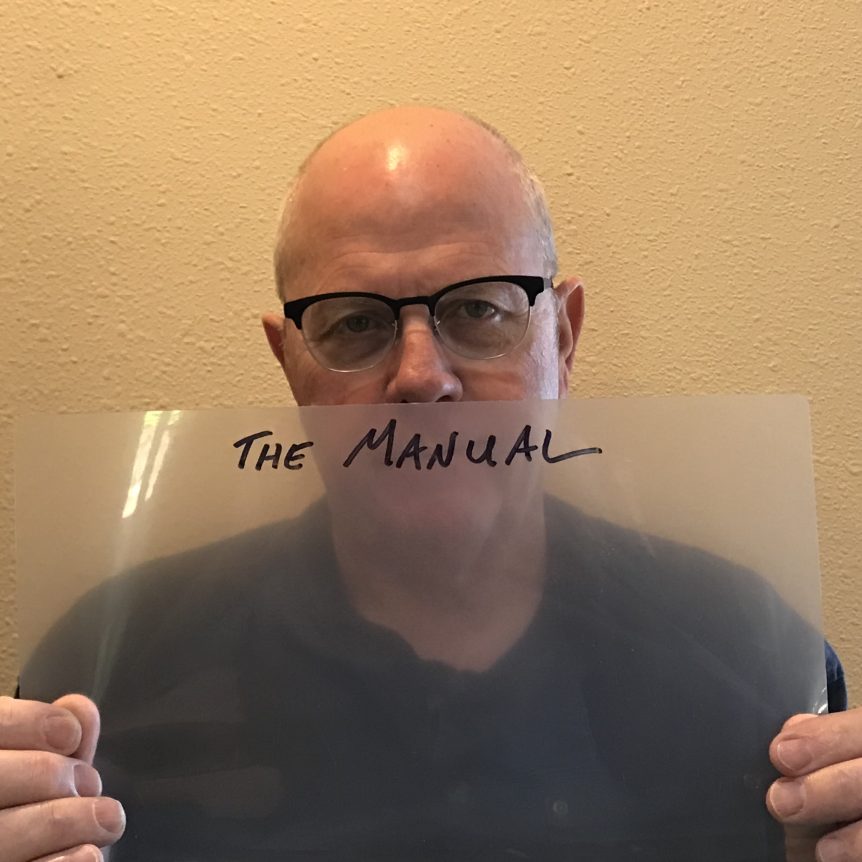“Oh drat. We left the light on in the hallway,” Craig said. Sighs from both of us. “So who’s going to get up and turn it off?”
“Well, you are, obviously,” I calmly advised as I snuggled deeper under my woobie.
“Obviously, nothing! So why is it automatically MY job?”
“Because The Manual says so, that’s why.”
“The manual?” Craig sounded highly skeptical of my rational logic.
“Yes, The Manual. That’s where all the assignments for ‘who does what’ are explicitly laid out.”
“Oh, right. So show me this manual.”
“Nope. No can do.”
“And why is that?”
“Because we wives don’t need hard copies. They don’t exist, actually. We have it memorized.”
“Memorized? Yeah, right. So when did that happen?”
“It’s in our DNA, sweetheart. We’re born with it. And part of our job throughout our married lives is to tell our husbands what it says,” I informed Craig. “Like needing to get out of bed to do something—especially on a cold night? That’s clearly the husband’s job. Chapter 5, Section 3a. No sense arguing about these things when it’s all perfectly clear in The Manual.”
Grumbling, as he’s climbing out of bed to get the light, “You can take that manual and—”
To be continued.
Connecting More Deeply
With my God: What “hidden expectations” do I have for God? Do I expect him to provide happiness—or joy? Is there a difference between happiness and joy? Whom do I presume/demand will do the lion’s share of the work in this relationship?
With my spouse: If there really were such a thing as The Manual, what “assigned jobs” do you picture there? Closely related to hidden expectations, these should be brought to the surface and discussed, together. Is it time for some re-adjustments of those chores in your home?
With my community: In your home of origin, who maintained the yard, car, exterior up-keep? Were those considered “chores for men”? What about cooking and cleaning, most inside tasks? What duties were dictated by culture as only for men? Only for women? And how did your mom and dad respond to those? Did you bring those “assignments” into your home?
If you grew up in a single parent home, how were the chores assigned? What cultural “rules” governed there? Did you judge those rules fair—or not?
A step further: In your home of origin, what were children expected to do? Has that changed from your home, now? What’s good? What’s not so good?
Leader’s Corner: First, you might want to take your class on a creative walk through other possible chapters in The Manual. What topics would the men like addressed? The women? Then, use those topics as guidelines for the direction you go—pointing out how quickly what we tease about often has hidden undertones of reality, disillusionment and conflict. Demonstrate how humor and teasing can be used as stepping stones to in-depth communication.
For example, another chapter might be: “If a Tree Falls in the Forest, Is It Still the Husband’s Fault?” Allow some good interaction with humor before you take this to a deeper and more serious level by asking something like, “Seriously, who’s more prone to apologize and take blame in your relationship? By default, who’s generally considered at fault? Is this true? Or is one of you just more eager to take blame…to get the conflict over with? Are there other reasons?
You could assign homework concerning each partner reflecting on our communication and/or conflict…how it makes me feel…am I an avoider of communication and/or conflict or not, and why?
Note: We’ll refer to The Manual in future newsletters. Because truthfully, it does exist. I mean…why would I make up something like that?


